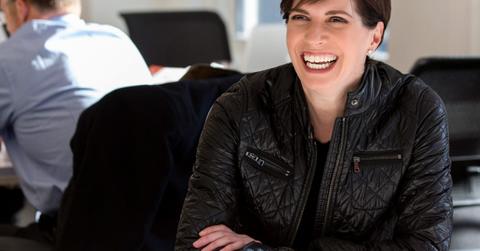Think about the last time you made a meaningful work-related connection. The type of connection that lasted beyond the exchange of business cards. Chances are it’s been a while. And to make things worse, you’re probably missing out on opportunities for engagement in ways that you don’t even realize.
“Build Your Dream Network” isn’t a magical checklist for getting more followers, because there is no such a thing as a checklist that applies to the complexities of every human being. What BYDN is, however, is a testimony to the effective strategizing, thoughtful communication, and engagement lifestyle that J. Kelly Hoey used to take her from practicing attorney, to law firm consultant, to venture capitalist, and now to author.
Her Agenda spoke with Kelly Hoey about her first book and the incredible journey that made her the master connector she is today.
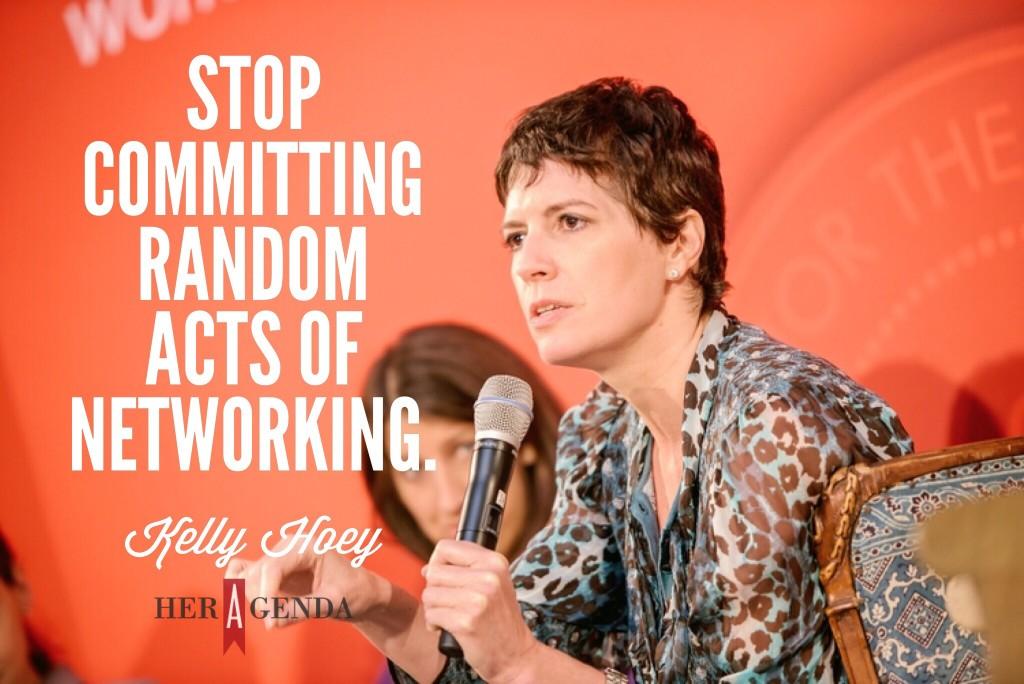
Her Agenda: When did you begin to claim the title “expert networker?”
Kelly Hoey: I love this question because someone just recently said to me Kelly is a self-proclaimed networking expert. You have to pay attention to the signaling from your network. A lot of times in life our network sees things in us before we see them. My intuition and insights on networking comes from what people in my network have told me about me. That’s another part to networking, you have to look to that signaling.
But one of the points I was making in the book is that it’s not “who you know” or ‘what you know.’ It’s “who knows what you know.” And maybe it’s so magnified because of social media, but putting out there the skills, the expertise, the knowledge [you want to be known for] and really purposefully thinking about [how you put] information out there with clarity so that people know that that’s what they should call you for is how referrals are made and jobs are found.
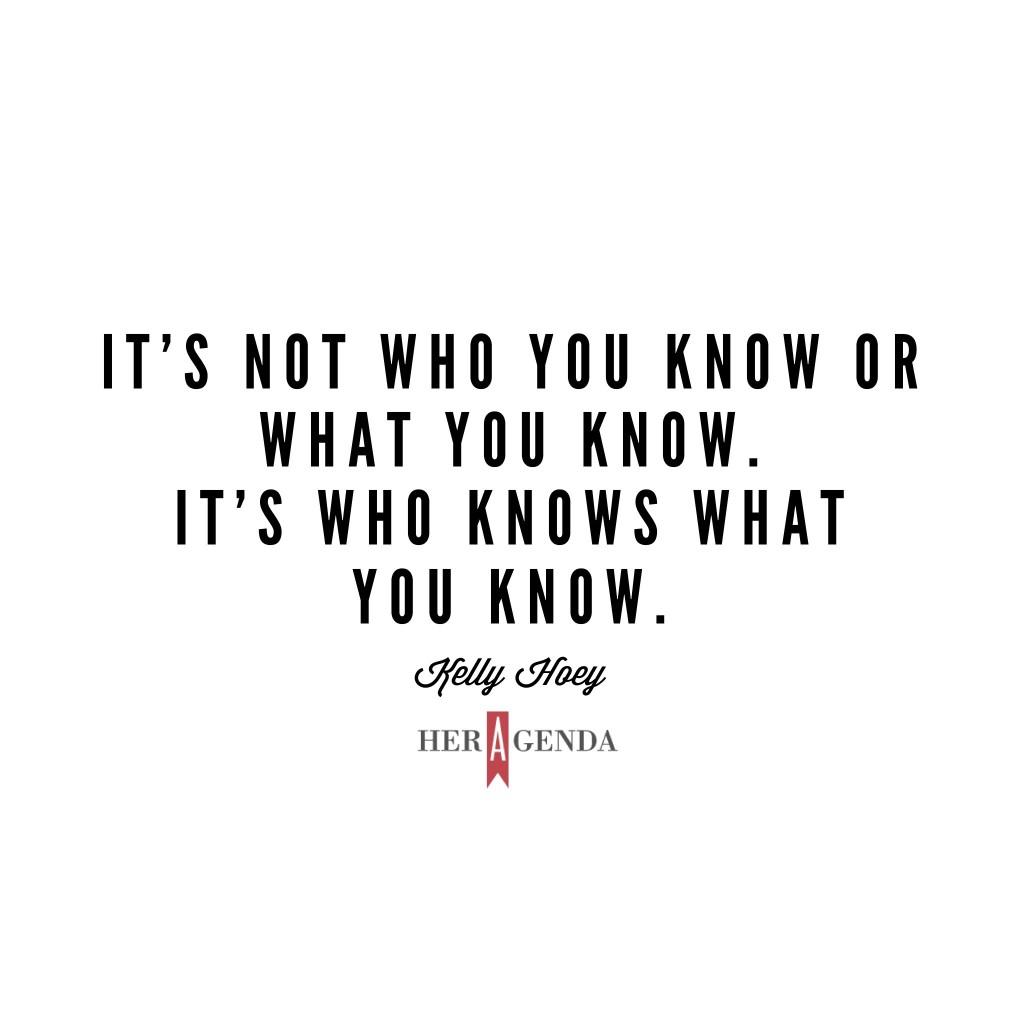
The flip side is as you’re thinking about who you are, what you want to be known for and your next career change, look around in your network and see how they’re networking with you, see what they’re calling upon you for. It might be something you want to be known for and it might not be. That’s when you tweak the way you’re interacting with the world and the information you’re highlighting. So much of social media is noisy. And a lot of that noise will tell you about yourself and it’s an important discovery process. In this day in age, with all the networking options we have before us, we have the ability to craft what we want to be known for and found for.
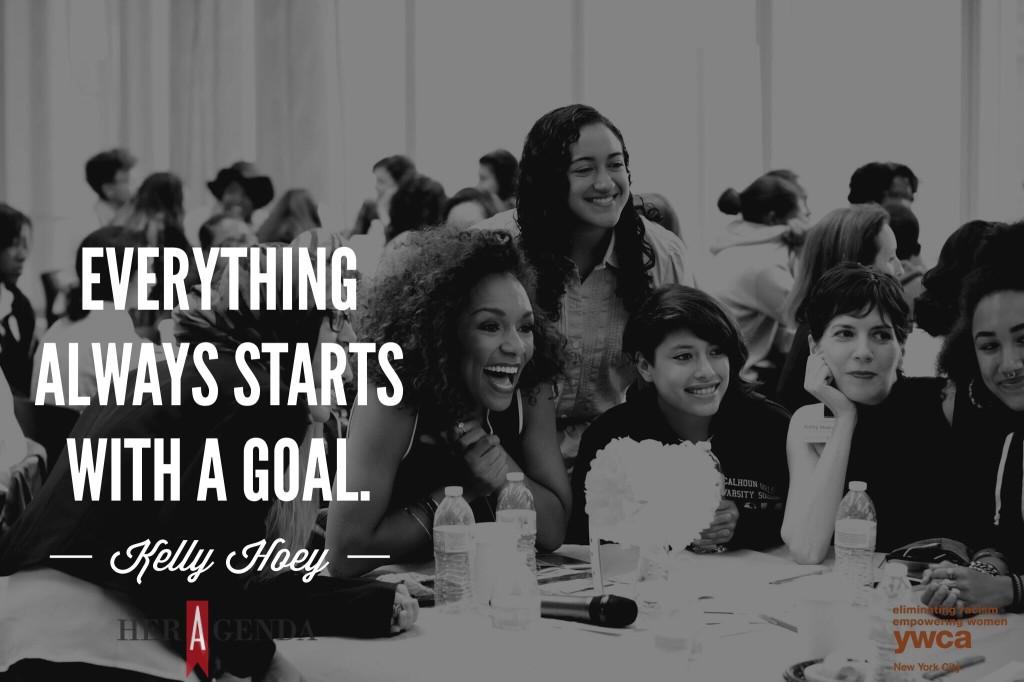
Her Agenda: When you’re in a stiff networking room how do you make these authentic connections?
Kelly Hoey: Everything always starts with a goal. So if I’m in a stiff networking room I know already why I’m in that room and why I’ve chosen and understood that I need to be in that room. The first thing I think about is “what is my goal?” What are you trying to achieve? And by that I don’t mean “well I’m trying to get a job,” I mean get hyperspecific. What is it that you’re trying to achieve?
And then the second point is, who are the people that can help you? And where do they network? And how are they engaging? Once you decide alright I really need to connect with this person, then it gets down to I need to go to this event because it will have the decision makers who can help me achieve my goal. If you’ve done enough research and you understand why you need to be in that room you can manage the stiffness and the awkwardness because you have a purpose for being there. I think where we freeze up and get this anxiety is that we find ourselves in a stiff networking room and we have no idea why we’re there. The anxiety overtakes our abilities to make the situation fruitful. But one of my constant expressions is “stop committing random acts of networking.” If you’re just doing things without understanding how it’s connected to the ultimate goal then it’s a random act of networking and there are better ways of using your time.
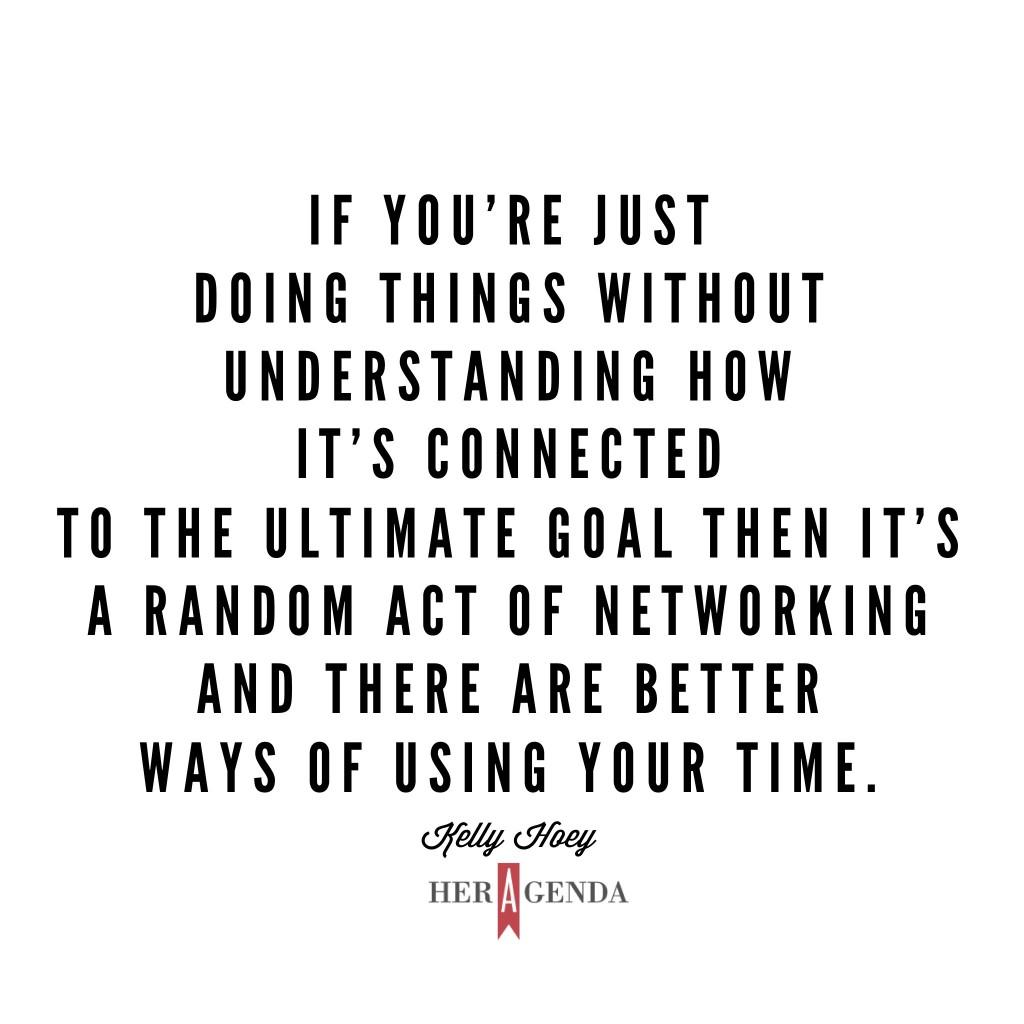
Her Agenda: That actually goes to my next question about strategic and purposeful connections that you talk about throughout the book. When you were transitioning from your first career as an attorney to legal consulting, was strategizing to create these purposeful connections something you did instinctively?
Kelly Hoey: It really came to play when I transitioned from practicing law to legal management. I woke up in 2001 and had this desire to make a career change and started looking around and thinking what could I literally do. I made two columns on a piece of paper for what I liked about my job and what I did not like. I came to a conclusion that I needed to investigate roles within law firms that would enable me to mentor, advise and guide the careers of others.
As soon as I came to that conclusion I started to look at my network to say who can I ask about this and I realized, oh dear, I don’t have the right network to fully investigate this as a career change, let alone find these jobs because they weren’t being advertised in 2001-2002, they were all done through networks.
So I really purposefully over 18 months built an entirely new network that not only landed me the job, but enabled me to do my new job. I had done the first 90 days of the new job before I landed in it and I had the support for the new job because I had all these new peers in the industry that I had been talking to for the better part of the year. I was able to pull the bits and pieces of ways I networked intuitively, into practice when I made that career change.
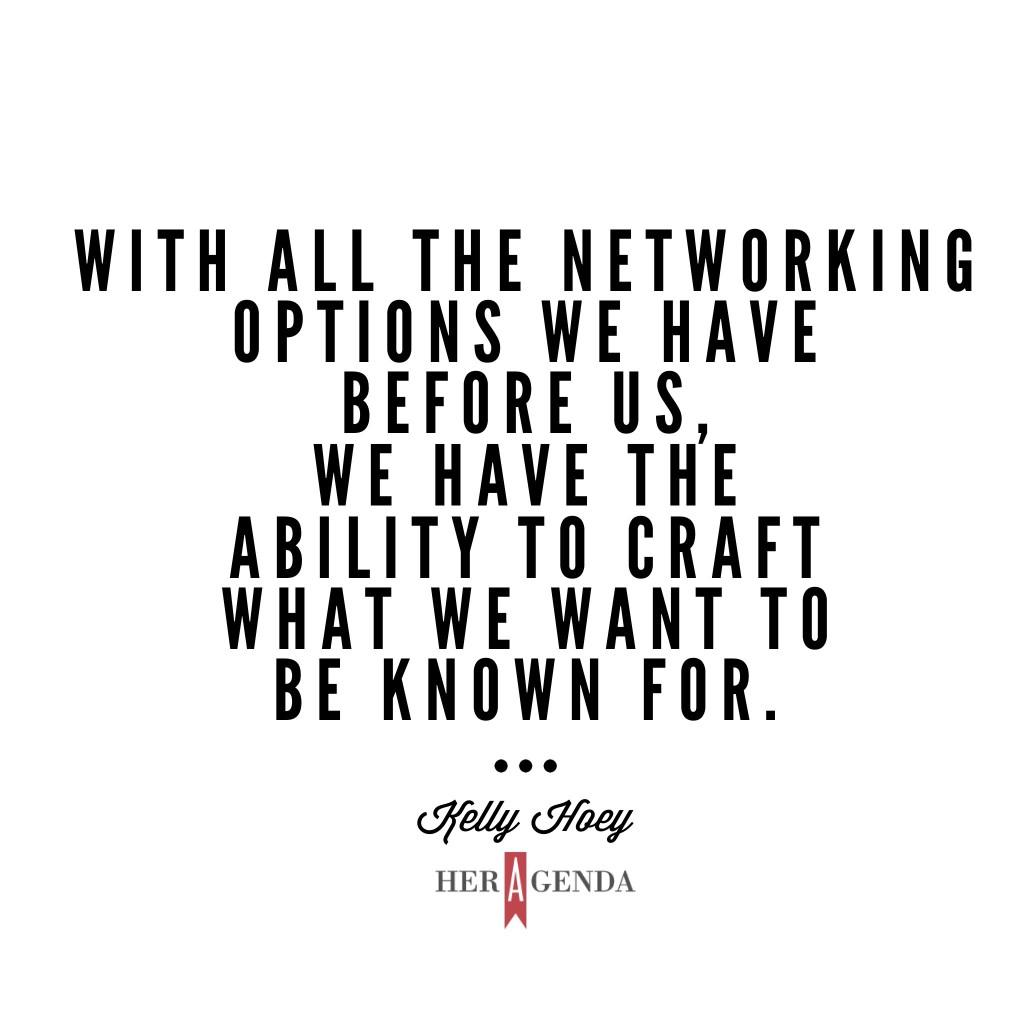
That came to play, again, when I was writing the book. Because when I came to the decision that I wanted to write a book on networking, and add to the bookshelf in Barnes & Noble with books on networking. Well the first thing I thought was where do I even start? And that’s a book proposal right? How do I draft that? Well, I didn’t put out a Facebook post. I didn’t scan the universe. I could’ve done a Google search and spent hours on that, but instead I sat and thought who do I have in my network? I had one friend whose family had a publishing company, I had one friend who had recently submitted a book proposal and was working on her first book, and I had another friend who just finished writing a book and was about to be published. So I emailed those three people and that’s who I talked to in the beginning phase. And then the next phase of the literary journey was getting a literary agent. Again I thought about who do I know? I could’ve scanned my network and walked around asking people hey do you know a literary agent? But knowing that the best introductions are warm introductions as opposed to being just another cold email saying ‘hey I have a book would you represent me?’ I came up with a list of a dozen people in my network. There was some overlap and I emailed those four people and told them what I was doing. I’m always very intentional to ask the right people who can give me the right information, rather than ‘a spray and pray’ that someone responds.
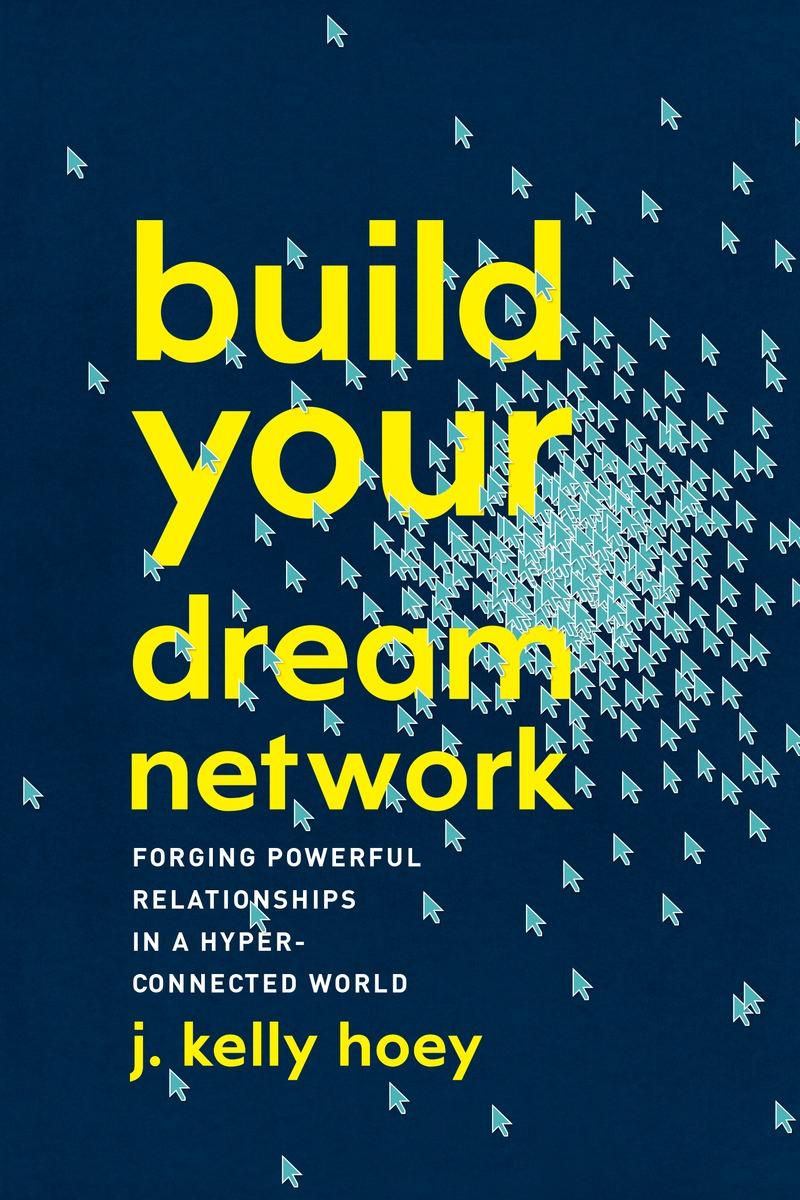
Her Agenda: And I think that’s really important to note– that it’s more about thoughtful research before you enter that room or before you step out onto that next career path. To me that says that if you’re two years into a career and you haven’t been doing those things it’s not too late to implement those practices now, would you agree?
Kelly Hoey: Just start doing it. And I learned that lesson unfortunately for me in 2001-2002 because I didn’t land my first law firm management job until 2004. I had a job. I was in a relationship where I had a supportive spouse who said, “go ahead quit your job. The mortgage is paid and there’s food on the table. You don’t have to worry about these things. Go ahead and be happy in your career.”
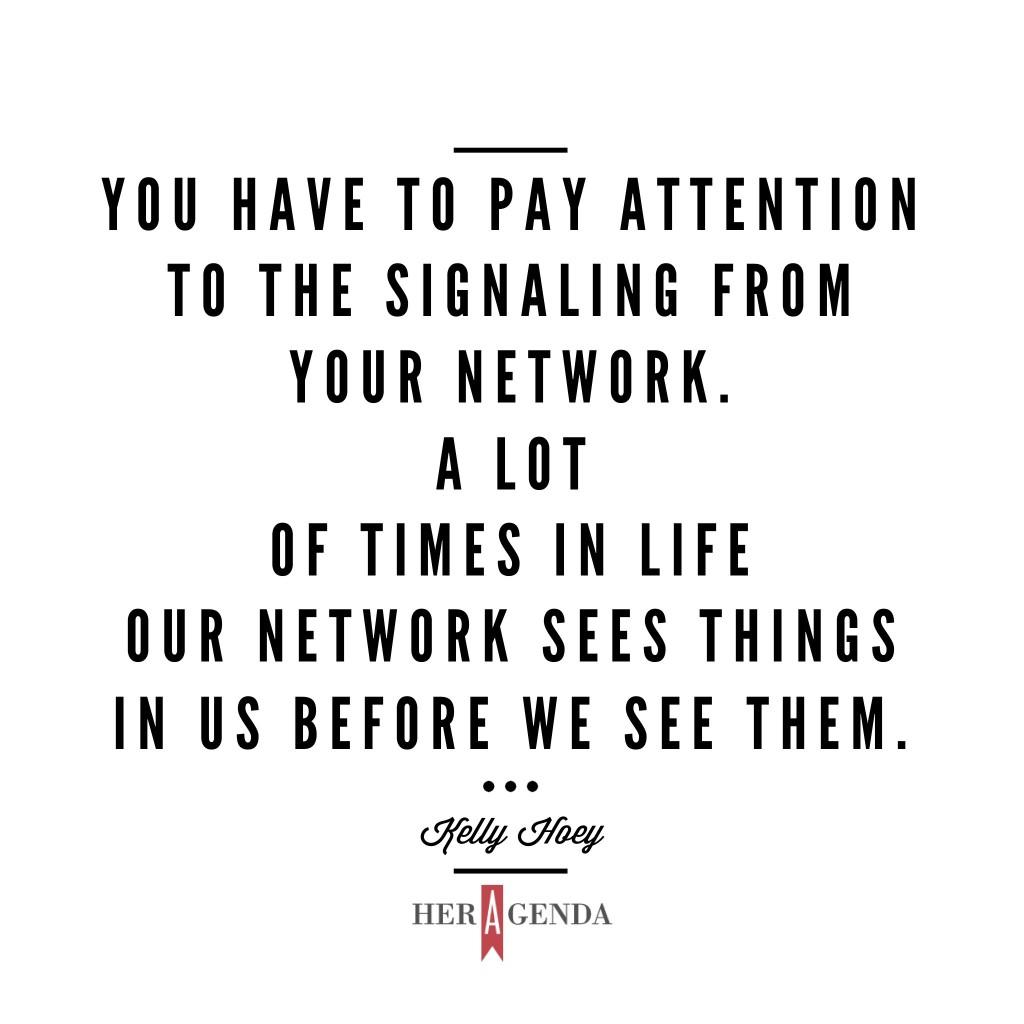
But in 2008-2009 when all the layoffs were happening on Wall Street and in law firms due to the recession, I had been telling people beforehand ‘hey this is what you need to do and you need this network.’ Then I had the unfortunate task of being part of the exit review process for a number of attorneys who looked at me in the face and said we should’ve listened to you when we joined the job in 2004. Now it’s 2009. The economy sucks. And now [they] have to go find a network to get the next job, because all [they’ve] done for five years is keep [their] head down and do good work.
I hate to tell you but [that was] a really sucky time to do that, because at that time everyone is leaning on their networks in the same way. Some of that experience plays out in the advice I give people. Because between economic times, hard times or transitionary times, or uncertain times there’s a falsehood assumption that we have an easier and faster way to connect with people due to technology. Too many people are over burdened with asks. Most people are constantly asked for things like “hey I need help finding a job” or “hey can you do this for me?” Our knee-jerk reaction is to say no. Make it easy for me to help you by doing the research and coming to me with a reasonable ask that makes sense in terms of who you are and what you’re seeking to do. But you have to do that research and do that legwork yourself.
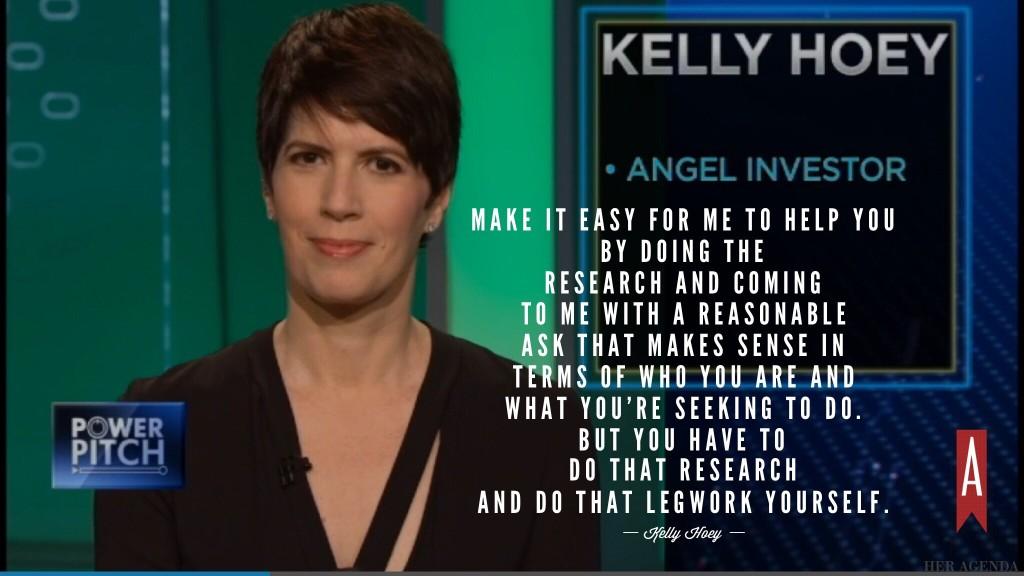
Her Agenda: As you’re speaking I’m thinking that this would be such an important lesson for high schools to teach that you shouldn’t be building your network when you need it, you should be building it along the way.
Kelly Hoey: One of the early readers of my book was supposed to be a start-up founder who I’ve been an adviser too. She took the book home and her 17-year-old son took the book and won’t give it back. He’s a high school senior, thinking about college, and you’re absolutely right. The asset for that generation is they have tools to allow them to not wait for 25th high school reunion to find out what happened to everybody. They think about ways to stay in touch and have sort of peripheral vision on people they’d been in high school with. They’re likely to have a fuller and richer network than my generation. But it still requires an understanding of the human condition, an interest in generosity, and in respect for other people. Technology has not changed that part of networking. What it has done is make it easier for us to collect the information to connect more effectively.
Her Agenda: And it’s almost something that they do it naturally. You know kids who are in high school are used to being hyper-connected, so applying a more thoughtful approach to something that they already do would really take them to the next level.
Kelly Hoey: They could be. The problem is that you need to be amphibious in this day and age. You need to be aware of how people are connecting, communicating and engaging and it’s not offline, it’s not online, it’s both. And you need to really look at the individual and understand how they are engaging with people in this world. Someone who is digitally-savvy, has massive emotional intelligence, someone who has done team sports and understands face-to-face interaction with people. I think they are the ones who are positioned to be the most successful of any generation.
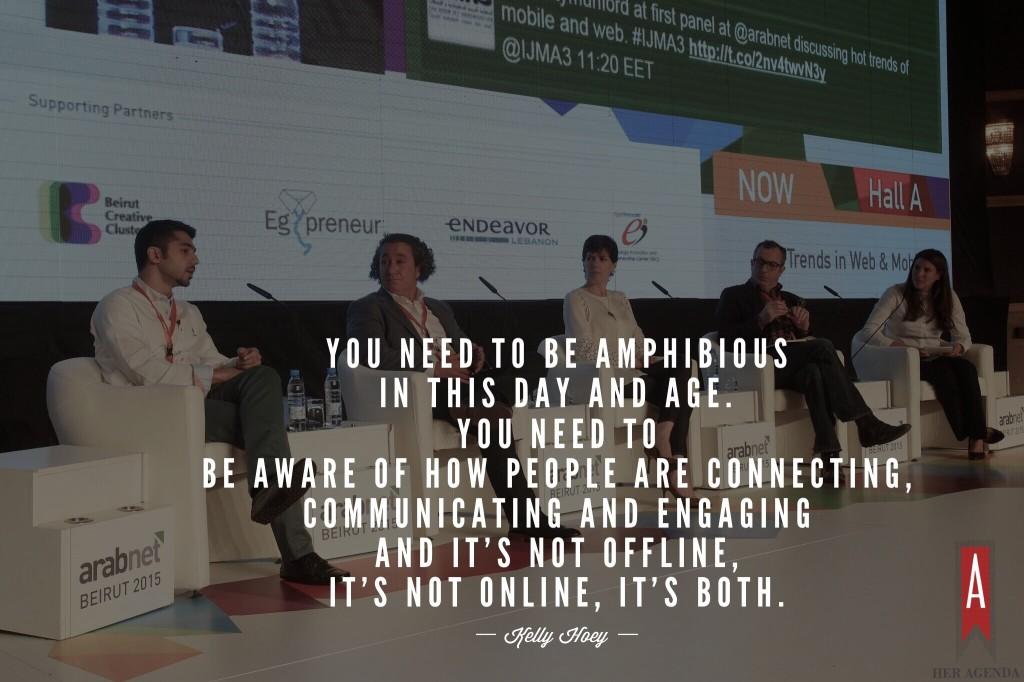
Her Agenda: I love that term amphibious.
Kelly Hoey: You have to be amphibious. People make an assumption that it’s just the younger generation. There are two people I would text for recommendations on technology. One of them is my 15-year-old nephew. The other is a friend’s mother who’s a 78-year-old woman who lives in Silicon Valley. So you can’t make assumptions that this is a generation that does it and this is a generation that doesn’t do it. There’s people who use technology better, there’s people who engage with other people better, but as a generalization if the digital natives can really get amphibious and not just be focused on the digital [they will be highly successful.] And I think you’re seeing that cause it’s a generation that wants to have experiences, over things. A generation that is wanting more meaning from work, not just the volume of time you put into a work week. There’s massive potential in terms of them being better humans connected to other human beings.
Her Agenda: You know everything that you’re saying really resonates with me. And I think many young people would say that their parents don’t fully understand that idea of using your connections to move on to the next thing. They would much rather we stay at one job for 20 years, move up the ladder, and call it a day. So we sound crazy to them! How can we defend this pursuit of doing what we really want to do and transitioning?
Kelly Hoey: The last presidential election revealed that there are still people who are grasping for hope and hold on to the notion that we can have the old jobs for life. There are people who have the ability to craft a career and stay with one company for the rest of their life. But I think for the majority of us, because of technology and the nature of work shifting so rapidly, more of us need to be prepared and ready for the idea that whether we are seeking it or not, we’re going to have multiple employers and multiple and different forms of employment. We need to be the entrepreneur of our own careers so that we can navigate these changes. Whether it is roles within firms. Whether it is freelancing. Whether it is having a job and having a side gig, whether it’s starting a real thing or starting the wash cycle on our career a number of times. I would say a decade ago if you changed jobs too much people might raise their eyebrows or express concern. I think people are kind of over that at this point because we haven’t seen the traditional jobs come back to the extent that political rhetoric would like us to think it is.
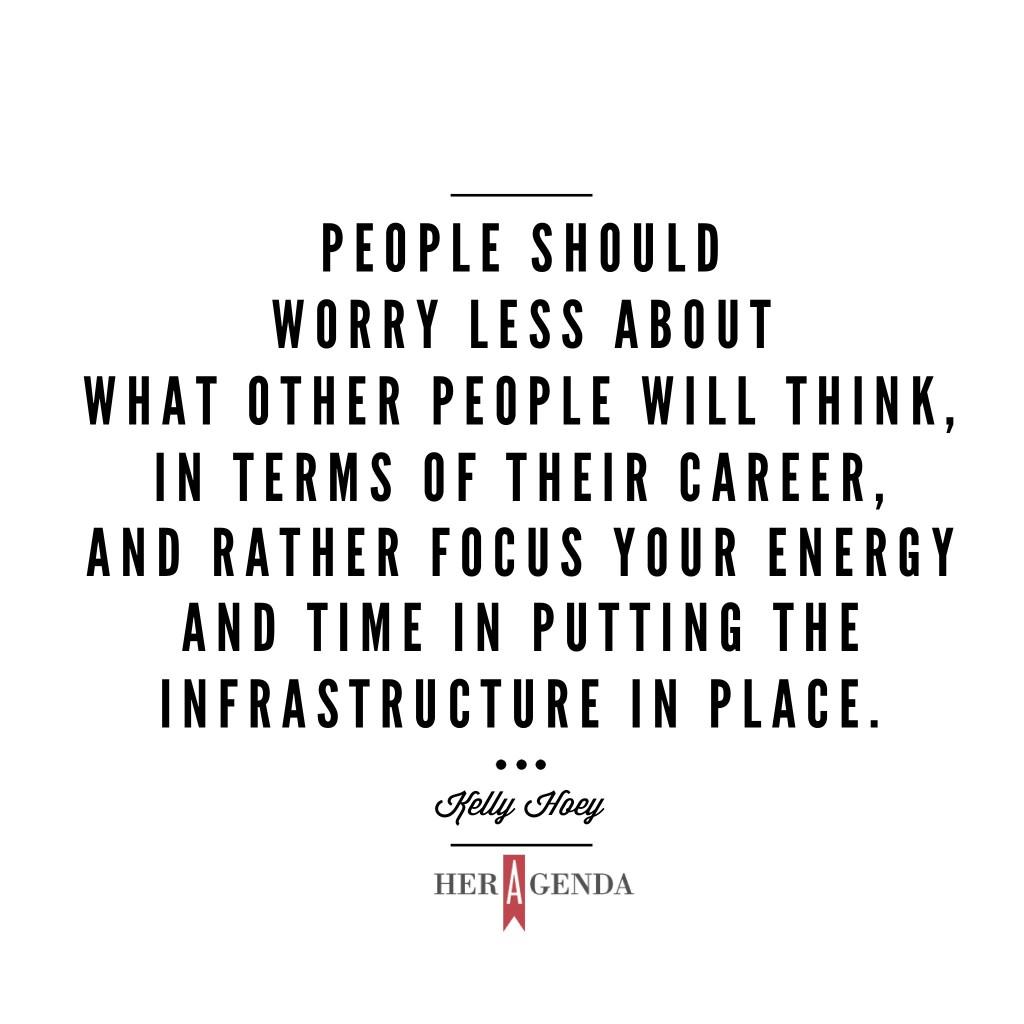
People should worry less about what other people will think, in terms of their career, and rather focus their energy and time in putting the infrastructure in place. And by that (infrastructure) I mean your expertise, your network and your financial wherewithal. That way you will be able to explain to people why and how you’re doing certain roles, or why and how you’re taking this assignment, or why and how you’re taking a role at a company to do this. That it’s part of the jigsaw puzzle and part of a bigger career trajectory.
[EDITOR’S NOTE: THIS WAS PUBLISHED ON JANUARY 16TH TH, 2017. IT’S BEEN EDITED FOR LENGTH AND CLARITY.]

